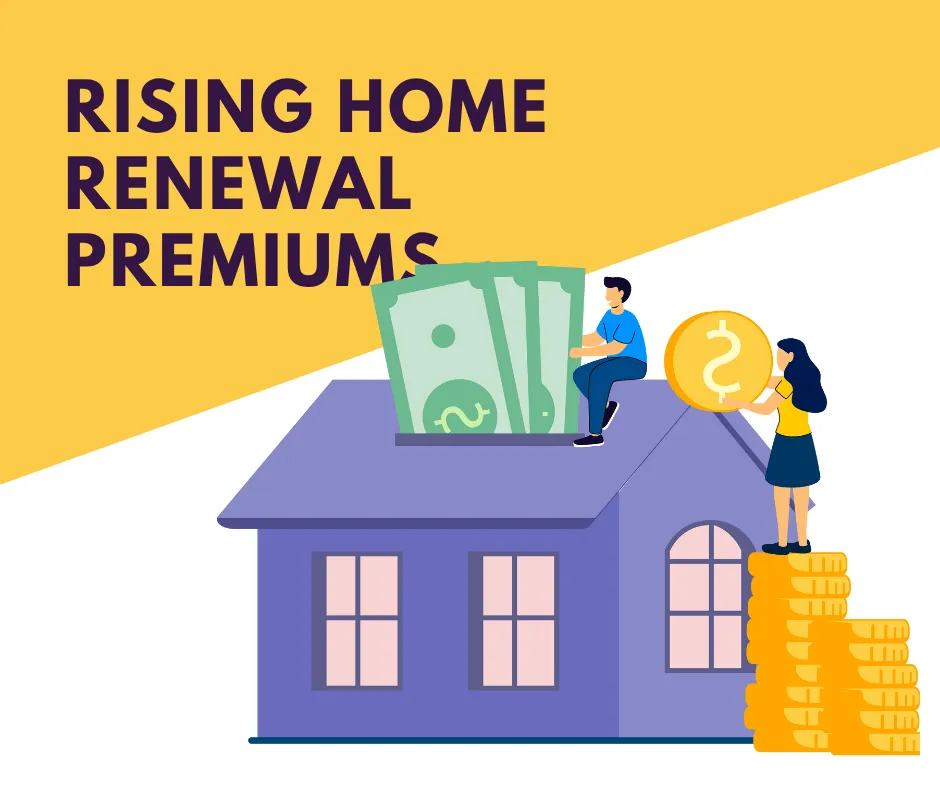Blog
Interesting information you might want to know

Why Home Insurance Increases Every Year in Canada
Home insurance premiums increase are influenced by a wide range of factors.
Why Home Insurance Increases Every Year in Canada?
Home insurance premiums in Canada often increase every year due to a combination of individual, regional, and industry-wide factors. Below is a comprehensive breakdown of why home insurance rates go up, along with a list of contributing factors, and strategies to reduce your premium:
🏠 Why Home Insurance Increases Every Year in Canada
1. Inflation and Rising Construction Costs
Labour and material costs increase annually.
Higher costs to rebuild a home mean insurers need to adjust premiums to reflect accurate replacement value.
2. Increased Frequency and Severity of Natural Disasters
Wildfires, floods, storms, earthquake, and extreme weather events are on the rise both locally and globally.
These increase the number and cost of claims, particularly in affected provinces (e.g., B.C., Alberta, Ontario).
3. Claim History
If you have made one or more claims, insurers may increase your premium or apply surcharges.
4. Rising Reinsurance Costs
Insurance companies buy reinsurance to protect themselves. When global disasters increase, reinsurers charge more — costs passed on to you.
6. Location-Based Risk
Certain neighbourhoods become higher-risk due to increased crime, aging infrastructure, or flood risk zones.
A high claim rate in your geographic area may also have an indirect impact on your renewal premium.
7. Government Regulations & Tariffs
Changes in provincial insurance regulations or tariffs on construction materials can drive up costs.
8. Coverage Enhancements
Insurance companies automatically increase your personal contents coverage slightly to ensure it keeps pace with inflation.
9. Market Pricing Adjustment
The insurance company may have initially "underpriced" the policy—particularly in the first year, though it can happen in any renewal year—making the renewal appear to be a substantial increase, when in fact the updated premium is still below the average market rate.
You may check with your broker to see whether other insurance companies are also increasing their pricing. If their quotes are significantly higher, that will help explain why your current insurer’s renewal premium increase may seem substantial, but it is still more competitive than most alternatives.
See blog about "List of Factors That Affect Home Insurance Premiums"
💸 How to Reduce Your Home Insurance Premium
✅ 1. Increase Your Deductible
Raising your deductible from $1,000 to $2,500 can lower your premium.
✅ 2. Bundle with Auto Insurance (Except for BC)
Most insurers outside of B.C. offer discounts of 5–20% if you bundle home and auto policies.
✅ 3. Stay Claims-Free
Avoid filing small claims. Long claims-free history often results in loyalty or claims-free discounts.
✅ 4. Install Safety Devices
Monitored alarm systems, tank-less hot water tank, and water leak sensors can lower risk and potentially reduce premiums.
✅ 5. Working With A Broker
Consider working with a trusted broker to compare quotes from multiple insurers each year.
✅ 6. Maintain Good Credit (Where Allowed)
In BC and other provinces where credit scores are considered, a good credit rating can lower your premium.
✅ 7. Avoid Policy Gaps or Cancellations
A history of non-payment cancellations can lead to higher rates or reduced insurability.
Continuous insurance history can help reduce your premium.
✅ 8. Review and Adjust Coverage
Make sure you're not over-insured or paying for coverage you don’t need (e.g., jewelry you no longer own or an excessive amount of strata deductible coverage you no longer require).
In Summary:
Due to the various factors that influence home insurance renewal premiums, it’s recommended to work with a trusted broker to review your current policy, make adjustments accordingly, or even obtain new quotes to potentially find a more competitive rate for you.
Email: [email protected]

